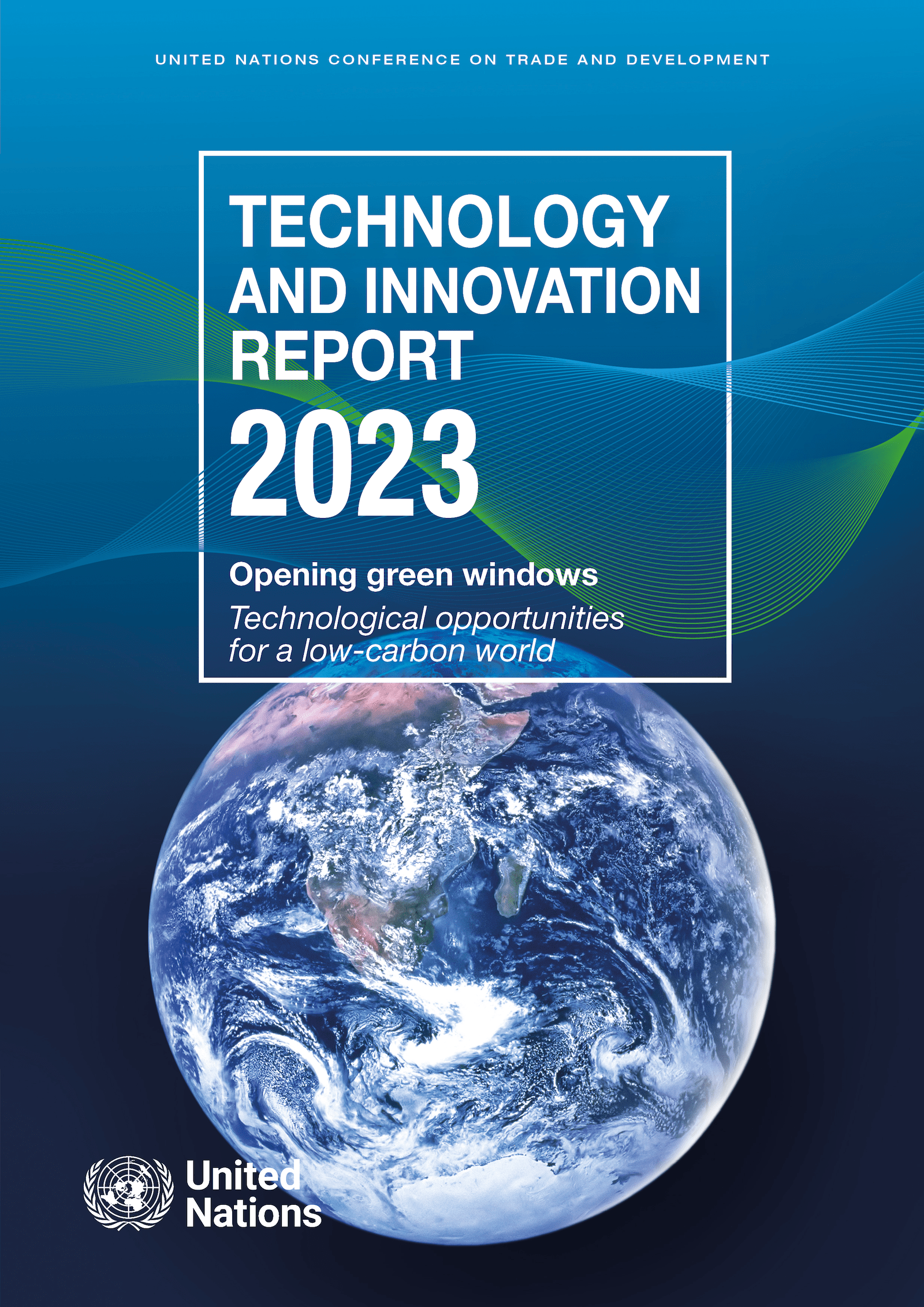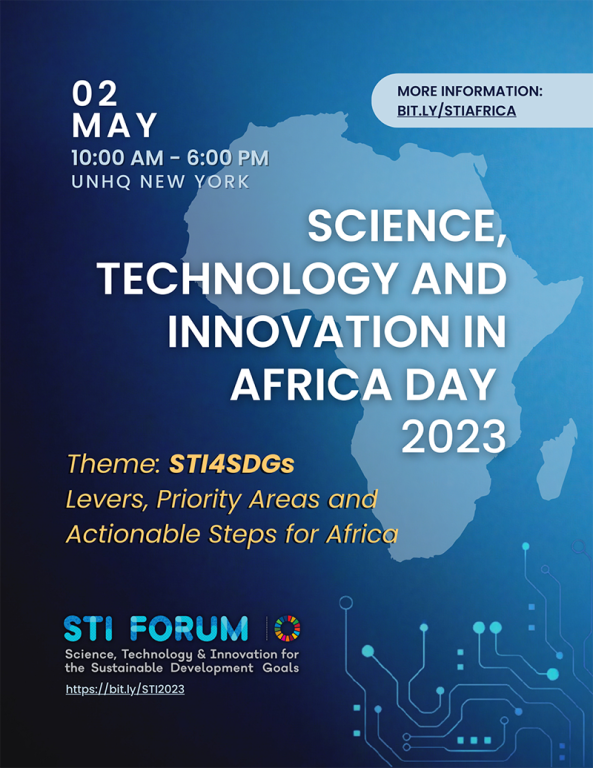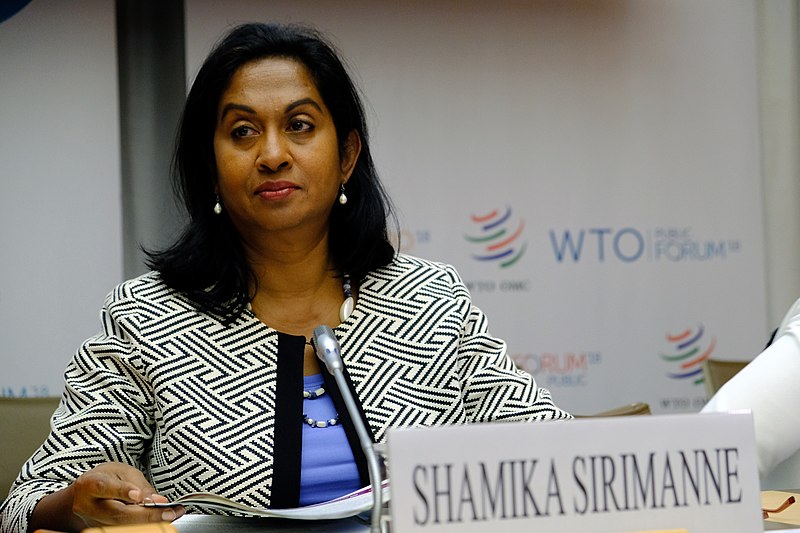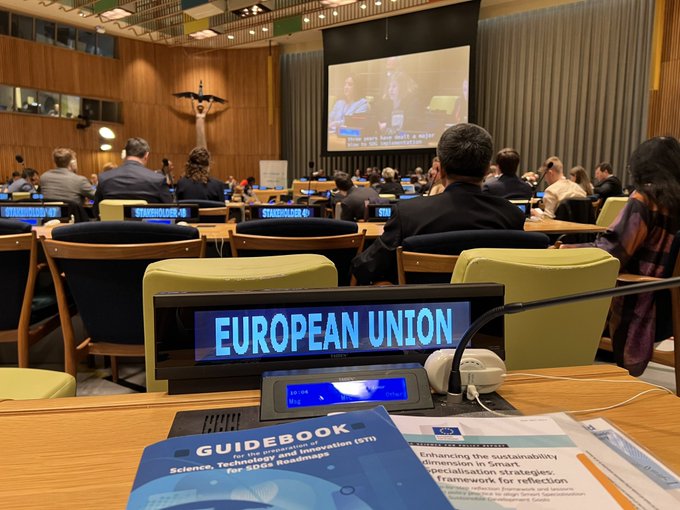The first STI in Africa Day was held at the margins of the STI Forum in New York, with a focus on STI4SDGs: Priority Areas, Levers and Actionable Steps for Africa, as a side event to the 8th Multi-stakeholder Forum on Science, Technology and Innovation for the Sustainable Development Goals 2-5 May 2023.
- Download the programme here # 5 p.
- Download the Concept NoteScience, Technology and Innovation in Africa Day 2023 # 4 p.
- See the recordings at the bottom of this blog post
The STI in Africa Day had two main purposes:
- To serve as a vehicle for connecting the global community to cooperate, network, showcase, share experiences, build strategic alliances, and, wherever possible, set in motion concrete actions that advance Africa’s STI4SDGs priorities; and
- to bring the outcomes of the African Regional Science, Technology and Innovation Forum to the global STI Forum and vice versa, with a view to guiding facilitative actions on both ends.
The African Regional STI Forum has grown into the pre-eminent continental platform for the exploration of priority issues of science and technology, showcasing emerging developments relevant to African STI4SDGs, building and enhancing technical and entrepreneurial culture among young people, and forging long-lasting partnerships and alliances that are sustainable and potentially self-sustaining in the long run. Since 2019, the continental STI showcase has attracted over 3,000 delegates representing African countries, United Nations agencies, the academia, industry, civil society, youths, and marginalized groups, among others.
The co-organisers of STI in Africa Day at the STI Forum are DESA and ECA, with the support of FAO, MIT, UNESCO, and Office of the Special Adviser on Africa (OSAA)/IDTFAA.
The co-organisers of STI in Africa Day at the STI Forum are DESA and ECA, with the support of FAO, MIT, UNESCO, and Office of the Special Adviser on Africa (OSAA)/IDTFAA.
Showcasing youth ideas
- Ms. Ndeye Maty Ndiaye, L'Oreal-UNESCO International Rising Talents Award 2022 and For Women in Science Programme Ambassador, Fellow of the Organization for Women in Science for the Developing World (OWSD), Senegal
Opening remarks and key messages
- Ms. Amina J. Mohammed, Deputy Secretary-General of the United Nations and Chair of the United Nations Sustainable Development Group (video message)
- Dr. Bibi Ameenah Firdaus Gurib-Fakim, Former President of Mauritius
- Dr. Bonginkosi Emmanuel Nzimande, Minister for Higher Education, Science and Technology, South Africa
Key messages of the STI Forum in Africa and Origin and the Alliance of Entrepreneurial Universities in Africa
- Mr. Jean-Paul Adam, Director, TCND, ECA
- Prof. Paul Ndirangu Kioni, Vice Chancellor, Dedan Kimathi University of Technology, Kenya
Thematic Session 1: Mobilizing and Engaging Diaspora for STI in Africa
What measures or mechanisms are needed to enable the diaspora to contribute to STI development, including the 2030 Agenda and Agenda 2063? ▪ What mechanisms, frameworks and measures are needed to support African diaspora contribute and accelerate the development?
- Moderator: Prof. Clapperton Chakanetsa Mavhunga, Science, Technology and Society, Massachusetts Institute of Technology (MIT)
- Dr. Kathryn Malherbe, CEO & Founder: MedAI Sol (Pty) Ltd, South Africa. - Showcasing young innovator
- Her Excellency Ambassador Fatima Kyari Mohammed, Permanent Observer Mission of the African Union to the United Nations
- Ms. Tara Chklovski, CEO, Technovation, San Francisco, California, United States
- Mr. Pedro de Vasconcelos, Lead, Financing Facility for Remittances (FFR), IFAD
- Ms. Mmampei Chaba, Chief Director, Multilateral Cooperation and Africa, Department of Science and Technology, South Africa
- Mr. Tony Githinji, CEO and Managing Director, Semiconductor Technologies Ltd., Kenya
- Discussants: Missions of Nigeria, Egypt, and Ghana + State Secretary for Digitalization, Portugal
Thematic Session 2: STI for High Productivity and Economic diversification in Africa
- Moderator: Dr. Marlene Kanga AO, former President (2017-2019), World Federation of Engineering Organizations (WFEO)
- Mr. Gouro Amadou Kamissoko, CEO-Founder, the Startup Samba Development Mobile Application, Mali - Showcasing young innovator
- Ms. Ismahane Elouafi, Chief Scientist of the Food and Agriculture Organization of the United Nations (FAO)
- Mr. Ibrahima Cheikh Diong, United Nations Assistant Secretary General and Director General of African Risk Capacity (ARC) Group
- Mr. Charles Murito, Regional Director Government Affairs and Public Policy Sub-Saharan Africa, Google
- Prof Lindiwe Majele Sibanda, Chair, Consultative Group for International Agricultural Research (CGIAR) System Board (Excused)
- Mr. Leonidas Mushimiyimana, Juncao farmer representative, Rwanda (video)
Thematic Session 3: Role of Youth and the African Continental Free Trade Area (AfCFTA) in STI
How can we deploy and scale up technology solutions that can
benefit development? What are the examples/initiatives that work
on the ground and can serve as key partners for STI for Africa
Alliance? How can we capitalize on the AfCFTA to drive innovation
especially among the youth and women? How can Africa empower and harness its youths to meet its
industrialization and economic diversification agenda?
- Chair: H.E. Mr. Thomas Woodroffe, United Kingdom Ambassador to the UN Economic and Social Council, the co-chair of the STI Forum 2023.
- Moderator: Professor Nkem Khumbah, Chairman, Africa Development Futures Group
- Ms. Tsholo Ramokoka, Social Entrepreneur, Founder at AddressDox, Activist for rural digital inclusion, South Africa Showcasing young innovator
- Dr. Teffere Tesfachew, Managing Director, UN Technology Bank for LDCs, Turkey
- Ms. Shamika Sirimanne, Director, Division on Technology and Logistics, UNCTAD
- Ms. Xiaolan Fu, Founding Director of the Technology and Management Centre for Development (TMCD), Oxford University. UK
- Mr. Brighton Kaoma, the Global Director of the United Nations Sustainable Development Solutions Network
- Discussant Dr. Stuart Krusell, Senior Director, MIT Sloan Global Programs
- Discussant: Ms. Salome Guchu, Principal Innovation and Outreach Officer; InterUniversity Council for East Africa
- Discussant: Dr. Thulani Dlamini, CEO, Council for Scientific and Industrial Research, South Africa
Closing and the way forward
Summary of key initiatives and call for more supports:
Thematic Session 1: Prof Clapperton Chakanetsa Mavhunga, MIT
Thematic Session 2: Dr Marlene Kanga AO, former President (2017-2019),
World Federation of Engineering Organizations (WFEO)
Thematic Session 3: Professor Nkem Khumbah, Chairman, Africa
Development Futures Group (ADFG)
Key partners’ potential contributions:
- Mr. Alfred Watkins, Founder and CEO, Global Solutions Summit
- Prof. Guo Huadong, Director-General of the International Research Center of Big Data for Sustainable Development Goals (CBAS), China
- Mr. Alessandro Rainoldi, Head of Territorial Development Unit, Joint Research Centre, European Commission
- Mr. Jean-Pierre Cayol, Departmental Programme Coordinator, Department of Nuclear Sciences and Applications, IAEA
- Launch of partnerships for Origin Hub and the Alliance of Entrepreneurial Universities in Africa
- Launch the STI for Africa Coalition - Platform for sharing technology solutions and advancing STI partnerships
Transcript presentation Ms. Shamika Sirimanne (UNCTAD) @18:00:00

Ms. Shamika Sirimanne, Director, Division on Technology and Logistics, UNCTAD presented the finding of the report:
UNCTAD (2023) The Technology and Innovation Report 2023. Opening Green Windows: Technological opportunities for a low-carbon world # 236 p.
The technology and innovation report 2023 analyzed 17 frontier technologies, and these include artificial intelligence, Internet of Things and green frontier technologies such as green hydrogen electric vehicles, and so forth. And these technologies present a 1.5 trillion US dollar market today.
In the our report we say Africa possesses the world's greatest renewable energy capacity potential, estimated to reach about 310 gigawatts by 2030. And how do we realize this potential? So it's extremely important. Sometimes we don't realize it, because we have been told by many, [even] the Washington consensus, that the private sector will take care of the economy.
What we find in our report is that governments have a very big role to play to create the enabling environment to adopt and adapt these frontier technologies. The vision and government approach to tackle technological revolution, especially in partnership with private sector seem to have given big results. It's extremely to provide basic infrastructure skills, R&D and industrial capacity and this all will be done by the government.
ICT infrastructure is critical. We are going through a technological revolution. And access to connectivity is no longer a luxury. It's basically a right but only one in four in least developed countries have access to internet and this is a concern.
The private sector and finance will follow suit, if the enabling environment is there. What we find is that the private sector especially in developing countries will not lead if there is no enabling environment, especially in these new technological areas. They will not go into green technologies and AI and whatnot. If the enabling environment is not there the banks will not lend. Banks do not lend to young people who have this amazing idea of some digital startup. This is the reality. And banks would rather lend to retail, because that's something they understand.
We identified several good practices: Namibia with regard to green hydrogen; Kenya with regard to solar Photovoltaics (PVS), Ethiopia: biofuels. All happened when the governments and private sector work hand in hand.
Last point is that there's an urgent need to create the African voice in multilateral spaces where international trade and international and the intellectual property frameworks are negotiated, especially in the green technologies, and this could be a real bottleneck. We need to ensure that these green technologies are available for developing countries in Africa.
(...) A less stringent intellectual property regime at the global level is needed urgently to support less technologically advanced countries to benefit from green technologies. Can we have flexibilities built into international IP regimes as we are struggling with the climate change?
There there is enormous potential for Africa to benefit from Green frontier technologies. Most of the technologies needed to promote economic growth, diversification and green production are already here. We need the political will of the international community, especially those who own green technologies to support Africa, to build a more inclusive and sustainable development.
Transcript presentation Mr. Alessandro Rainoldi (JRC/European Commission) @ 2:14:20
Mr. Rainoldi leads a team of researchers and experts in the Territorial Development Unit, which is responsible for providing scientific and technical support to European policies related to regional development, urban-rural linkages, and territorial cohesion. The unit conducts research and analysis on topics such as regional innovation, smart specialization, and sustainable development, and provides policy advice to European institutions and member states.Mr. Rainoldi discussed the role of science, technology, and innovation in promoting sustainable development and regional integration in Africa.
Science, technology and innovation (STI) can indeed be considered as generally enablers for the achievement of the SDGs. STI can deploy a wealth of solutions that are different with regard to the countries, the context, the sectors and actors: government, private sector, research organizations, but also local communities.
Africa is probably the continent where the impact chain from STI enablers to SDGs is the shortest in the sense that innovative solutions most directly can impact on the achievement of the SDGs (...)
The European Commission has a long story and tradition in supporting the development of African countries, but has recent experience in working specifically on STI for SDGs.
We have extensively worked together with UN DESA and a number of UN agencies in the last few years on the Guidebook for the deployment of STI for SDGs roadmaps and a number of underpinning
evidence and scientific contributions.
evidence and scientific contributions.
United Nations Inter-Agency Task Team on Science, Technology and Innovation for the SDGs and European Commission, Joint Research Centre (2021) Guidebook for the Preparation of Science, Technology and Innovation (STI) for SDGs Roadmap #124 p.
But our contribution is not only on paper, documents and analysis. It's also on projects. We have recently launched an initiative that aims at accompanying a number of African countries in the deployment of STI for SDGs roadmaps. We're working now with with six pilot countries in Sub Saharan Africa: the Gambia, Malawi, Mauritius, Namibia, Rwanda, Seychelles and also with Tunisia.
- With the deployment of STI for SDGs roadmaps, individual countries can identify their most promising potentials for innovation for Science and Technology. (...) Through STI for SDGs roadmaps donors can identify their most promising project portfolios or initiatives for support.
- We work specifically on the methodological side putting together evidence and data to underpin the identification of STI for SDGs priorities on scientific Economic Innovation potentials, but also with tacit knowledge, that is embedded into communities, that act into the STI ecosystems.
- We believe that combination of knowledge coming from data and knowledge coming from people is an essential part of and the best way to identify those potentials that can trigger STI towards the achievement of the SDGs.
- Our project is embedded into the newborn African Union - European Union innovation agenda, as well as in the European Union effort on what we call the Global Gateway, which is a new way to interpret, design and implement Cooperation and Development aid.
- The European Union has a long experience in supporting the development of its own most deprived or most disadvantaged regions. This [experience] could be fruitfully used in adding the sub national flavor into the STI for SDGs approach, helping mobilize all available resources that territories and countries have, [as well as] human resources, skills, innovative potentials, that are located not necessarily in the innovation hubs of single countries but generally speaking in local communities in mid-sized cities, in actors that are sometimes not particularly connected with capital cities, but deserve to be considered as potential for development and potential for again, deploying STI for SDGs.
We are looking forward to the Coalition for STI in Africa. And we'll be we'll be pleased to pursue further discussions with UN DESA.
Background STI for Africa Coalition
The STI for Africa Coalition is a platform that aims to promote science, technology, and innovation (STI) partnerships between African countries and other stakeholders such as international organizations, private sector, and academia.
The "Strengthening STI Systems for Sustainable Development in Africa" project is an initiative within
UNESCO’s global framework for monitoring, policy support and advocacy for the UNESCO Recommendation on Science and Scientific Researchers (RS|SR)
Origin Initiative, a physical hub in East Africa has been launched by the Economic Commission for Africa (ECA) at the 5th African Science, Technology and Innovation Forum 2023 in Niemey, Niger.- The coalition was launched in 2021 by the African Union Commission, the United Nations Economic Commission for Africa, the African Development Bank, and the World Intellectual Property Organization.
- The platform aims to promote the sharing of technology solutions and best practices among African countries, as well as with international partners. The coalition seeks to create an enabling environment for STI in Africa by promoting policies that incentivize innovation and technology transfer, building capacity for research and development, and creating opportunities for knowledge sharing and technology transfer.
- The STI for Africa Coalition brings together a diverse range of stakeholders, including government agencies, research institutions, universities, private sector companies, and civil society organizations. Through partnerships and collaboration, the coalition aims to promote sustainable development and economic growth in Africa through the use of science, technology, and innovation.
- Overall, the STI for Africa Coalition serves as a platform for stakeholders to share knowledge, build networks, and promote STI partnerships that can help African countries leverage technology and innovation to address their unique challenges and opportunities.
Background: Strengthening STI Systems for Sustainable Development in Africa
The "Strengthening STI Systems for Sustainable Development in Africa" project is an initiative within
UNESCO’s global framework for monitoring, policy support and advocacy for the UNESCO Recommendation on Science and Scientific Researchers (RS|SR)
- Funded by the Swedish International Development Cooperation Agency (Sida)(, this initiative aims to ensure that governments and national science institutions in six African pilot countries (Congo, Ghana, Namibia, Sierra Leone, Tanzania and Zimbabwe) are taking measures to strengthen their national and regional STI policies, governance of STI, and institutions in research and innovation in accordance with the RS|SR.
- Africa-wide advocacy for the RS|SR will ensure that benefits also extend beyond the six pilot countries and lessons learnt on good practices of coalition of scientific collaboration in response to the SDGs are shared.
- In the African context, the RS|SR offers a comprehensive, up-to-date and highly relevant statement on how the institutional organization of science relates to the intrinsic values of science, the rights and responsibilities of scientists and scientific researchers, and to the role of STI systems in achieving national development objectives.
- The project's objective is to support action in six African countries tobenchmark STI systems against the RS|SR, strengthen capacities to design policy responses in national priority areas and to monitor progress, and establish a community of practice to underpin sustainable STI strengthening.
Background: Origin Hub
- The initiative aims to provide guidance for implementing original research and innovation labs, and organizational arrangements for entrepreneurial universities in Africa.
- The initiative will work in three core areas that include inventing, co-creating/co-innovation, and solving complex problems for Africa, with a focus on Agri-tech, Information and Communication Technology (ICT), and Design.
Background: Alliance of Entrepreneurial Universities in Africa
- The pilot programme used a self-assessment tool for entrepreneurial universities, developed jointly by the European Commission (EC) and the(OECD: HEInnovate to identify strengths and weaknesses with regard to qualifying as “entrepreneurial universities”.
- The project inauguration in Kenya took place in July 2018, while the Call for Applications for Tunisia and Morocco was announced in June 2018, with the implementation phase commenced in May 2019.
- See the presentation: Entrepreneurial Universities in Africa





 .
.
No comments:
Post a Comment